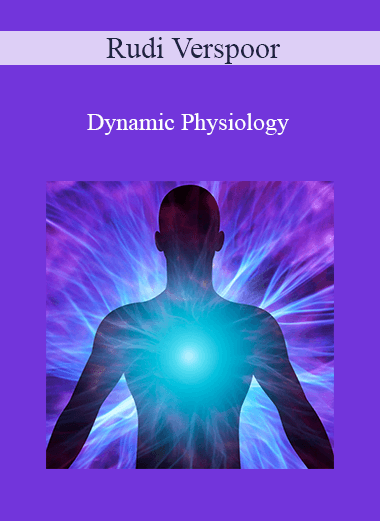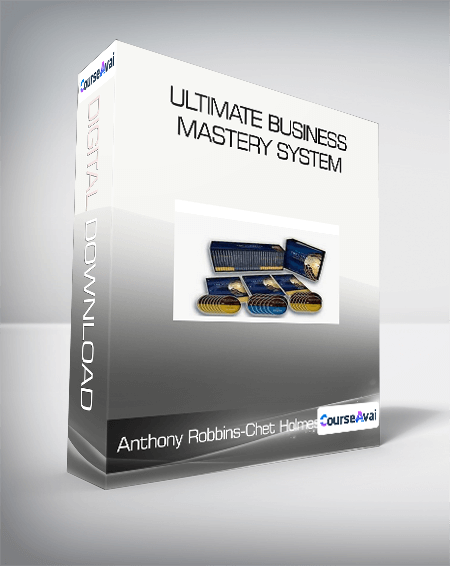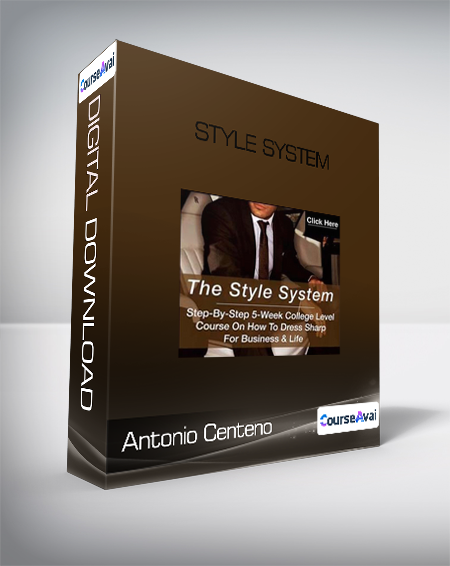Description
Buy Rudi Verspoor – Dynamic Physiology Course at esyGB. You will have immediate access to the digital downloads in your account or your order email.
Purchase Rudi Verspoor – Dynamic Physiology courses at here with PRICE $299 $71
Dynamic Physiology
Testimonials:
“The rational and dynamic approach to physiology changes everything. We discover that the organism is more than chemical interactions and genetics, that there is both a dynamic sensory and super-sensible dimension to physiology. The apparent victory of the material-mechanical model of science, based on inert nature, over the dynamic system of Romantic science created a bankrupt, one-sided system of medicine. As in Star Wars, through a correct guiding philosophy that drives the operations of vital functioning (physiology) in the organism, we can bring ‘balance to the FORCE’.”
P.C.
“My experience in studying Dynamic physiology has been rich, both in knowledge and wisdom! It’s expanded and broadened my life and has poured into my family, friends, and clients! What I learned and applied, through experience, has been invaluable and my hope and wish is that every person in the natural health and wellness industry would extract the truth and wisdom that the courses in dynamic physiology can offer! Whether you are an advanced practitioner or just beginning, it offers fundamentals in physiology that are laid out in a way that gives truth and advantages to the people who are studying it, second to none!”
P.B.
Unit I – The Idea of Science and Life
– Introduction to the science of vital, living nature – Romantic Science vs inert nature (matter)
– The key ideas of Romantic science – the human organism as a system of powers, forces and energies vs a collection of particles/matter
– Physiology is the study of living functions, not chemical interactions
In this unit, you will gain an understanding of the key aspects related to the concept of a more dynamic science, as opposed to the predominant mechano-material version generally taught. You will also can an understanding of how even inertial science has a dynamic flux and flow to. You will gain an appreciation for the framework for the expansion of science into the realm of vital nature, and be fully prepared to go into dynamic physiology into more detail in the subsequent presentations.
Unit II – Dynamic Physiology – Exoteric Aspects Part A
– The seminal ideas and writings of Dr. Richard Saumarez and his ‘New Physiology’
In this Unit and the next, you will gain an understanding of the key concepts related to dynamic physiology in the exoteric or more sensory-based context. As you learned in the previous unit, the mechano-material view of man is one-sided and partial and needs to be infused with a dynamic understanding of the human organism. You will learn to see organismic functions as functions (movements of energies) and not just chemical interactions.
Dr. Richard Saumarez’s writings provide the foundation for a living, dynamic, that is, true physiology – one involving living functions, not just the biochemistry of dead matter (allopathic ‘physiology’).
Unit III – Dynamic Physiology – Exoteric Aspects Part B
– The key ideas and works of Dr. Wilhelm Reich and the nature and functioning of vital (orgone) energy.
In this Unit, you will study the deep insights of Dr. Wilhelm Reich into the nature of life energy (what he called orgone) and its various properties, functions and principles of operation. Dr. Reich’s work forms a critical aspect of Romantic science and our ability to understand the phenomenon of health and illness, particularly in such complex conditions as psychological disorders, autism spectrum disorders, cancer, heart-lung issues, auto-immune disorders and a host of other metabolic-digestive problems.
Unit IV – Dynamic Physiology – Esoteric Aspects Part A
– The key ideas of Dr. Samuel Hahnemann regarding the supersensible members of the human organism.
In this unit and in the next, you will gain an understanding of the key concepts related to dynamic physiology in the more esoteric aspects. In Part A, you will learn about the concepts derived from the work of Dr. Samuel Hahnemann, the main contributor at the start of Romantic science and medicine, a contemporary of Dr. Richard Saumarez.
As you learned in the previous units, the mechano-material view of man is one-sided and partial. You studied the initial foundation for a dynamic physiology in the Romantic movement, involving the works of Dr. Richard Saumarez. You also gained an understanding of the very nature of the life energy through the works and writings of Dr. Wilhelm Reich in the first half of the 20the Century.
Man also consists of various members and aspects that go beyond the outer physical, material form, and even beyond the level of bio-physical functions. In order to properly understand Romantic science and healthcare, you will also need to understand the make-up and interactions of these super-sensible aspects. This more esoteric aspect of physiology will also be advanced in the next unit through the understanding provided by Rudolf Steiner and his various lectures on these matters.
Unit V – The Origin of Dynamic Physiology – Esoteric Aspects Part B
-The key ideas of Anthroposophic medicine as relates to physiology and the works of Rudolf Steiner.
Unit VI – The Ground Regulatory System or Extra-Cellular Matrix
– The key concepts regarding the role of the extra-cellular matrix system within which cells operate.
In this unit, you will gain an understanding of the key concepts of dynamic physiology as relates to the extra-cellular matrix or ground regulatory system. In previous units, you came across references to this system.
The study material will cover the development of the understanding of this system, in particular over the last 50 years, though its roots can be found in the struggle that took place in the mid-1800s between the cellular theory proponents, lead by Rudolf Virchow, which supported Louis Pasteur’s ‘germ theory of disease’ against the views of men such as Claude Bernard and Antoine Béchamp regarding the pleopmorphic nature of microbes. In reality, both were right, the one focused on cellular biology and the cellular system, and the other on the humoral aspects and what we now term the ground regulatory system.
Faculty Bio:
Rudi Verspoor has been studying health issues for over 30 years. He has been a practitioner for over 25 years. He studied naturopathy and homeopathy initially, but became increasingly concerned about the lack of a rational, scientific and integrating foundation for the natural health field. In addition to a busy practice, including hundreds of cases involving children on the autism spectrum. He also spends much of his time researching and teaching. He founded the Hahnemann Center for Heilkunst in 1997, the Hahnemann College for Heilkunst in 2001, and more recently the School for Romantic Science and Healthcare in order to promote knowledge about a rational approach to healthcare and to train other practitioners. He has been invited to speak and teach at various international conferences and institutions, and has written articles for a number of journals, in addition to writing books. The most recent books, of most direct interest to those who will take the course ‘Dynamic Physiology 101’, available on Amazon are: A Short History of Romantic Medicine: Past as Prologue and A Short History of Romantic Medicine: Redivivus.
Purchase Rudi Verspoor – Dynamic Physiology courses at here with PRICE $299 $71
Buy the Rudi Verspoor – Dynamic Physiology course at the best price at esy[GB]. Upon completing your purchase, you will gain immediate access to the downloads page. Here, you can download all associated files from your order. Additionally, we will send a download notification email to your provided email address.
Unlock your full potential with Rudi Verspoor – Dynamic Physiology courses. Our meticulously designed courses are intended to help you excel in your chosen field.
Why wait? Take the first step towards greatness by acquiring our Rudi Verspoor – Dynamic Physiology courses today. We offer a seamless and secure purchasing experience, ensuring your peace of mind. Rest assured that your financial information is safeguarded through our trusted payment gateways, Stripe and PayPal.
Stripe, known for its robust security measures, provides a safe and reliable payment process. Your sensitive data remains confidential throughout the transaction thanks to its encrypted technology. Your purchase is fully protected.
PayPal, a globally recognized payment platform, adds an extra layer of security. With its buyer protection program, you can make your purchase with confidence. PayPal ensures that your financial details are safeguarded, allowing you to focus on your learning journey.
Is it secure? to Use of?
- Your identity is kept entirely confidential. We do not share your information with anyone. So, it is absolutely safe to buy the Rudi Verspoor – Dynamic Physiology course.
- 100% Safe Checkout Privateness coverage
- Communication and encryption of sensitive data.
- All card numbers are encrypted using AES with a 256-bit key at rest. Transmitting card numbers occurs in a separate hosting environment and does not share or store any data.
How can this course be delivered?
- After your successful payment this “Rudi Verspoor – Dynamic Physiology course”, Most of the products will come to you immediately. But for some products were posted for offer. Please wait for our response, it might take a few hours due to the time zone difference.
- If this occurs, please be patient. Our technical department will process the link shortly after, and you will receive notifications directly via email. We appreciate your patience.
What Shipping Methods Are Available?
- You will receive a download link in the invoice or YOUR ACCOUNT.
- The course link is always accessible through your account. Simply log in to download the Rudi Verspoor – Dynamic Physiology course whenever you need it.
- You only need to visit a single link, and you can get all the Rudi Verspoor – Dynamic Physiology course content at once.
- You can choose to learn online or download for better results, and you can study anywhere on any device. Please ensure that your system does not enter sleep mode during the download.
How Do I Track Order?
- We promptly update the status of your order after your payment is completed. If, after 7 days, there is no download link, the system will automatically process a refund.
- We value your feedback and are eager to hear from you. Please do not hesitate to reach out via email us with any comments, questions and suggestions.





![Exhilarate - The Ultimate Zumba Fitness - Zumba Fitness - eSy[GB] Zumba Fitness Exhilarate The Ultimate Zumba Fitness Portuguese language - eSy[GB]](https://easygif.digital/wp-content/uploads/2021/06/Zumba-Fitness-Exhilarate-The-Ultimate-Zumba-Fitness-Portuguese-language-.jpg)
![Tai Chi Pushing Hands Courses 1 - 4 - Yang Jwing Ming - eSy[GB] Yang Jwing Ming Tai Chi Pushing Hands Courses 1 4 - eSy[GB]](https://easygif.digital/wp-content/uploads/2021/06/Yang-Jwing-Ming-Tai-Chi-Pushing-Hands-Courses-1-4.jpg)

![Train Your Mind for Athletic Success - Mental Preparation to Achieve Your Sports Goals - Jim Taylor - eSy[GB] Jim Taylor Train Your Mind for Athletic Success Mental Preparation to Achieve Your Sports Goals - eSy[GB]](https://easygif.digital/wp-content/uploads/2021/06/Jim-Taylor-Train-Your-Mind-for-Athletic-Success-Mental-Preparation-to-Achieve-Your-Sports-Goals.jpg)
![Programming of Jumps, Plyometrics and Medicine Ball Throws - Keir Wenham-Flatt - eSy[GB] Keir Wenham Flatt Programming of Jumps2C Plyometrics and Medicine Ball Throws - eSy[GB]](https://easygif.digital/wp-content/uploads/2021/06/Keir-Wenham-Flatt-Programming-of-Jumps2C-Plyometrics-and-Medicine-Ball-Throws.jpg)